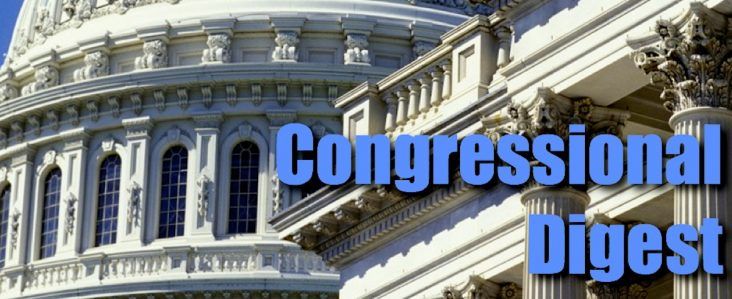Congressional Digest: Cuba trade, telecommunications, Supreme Court nomination fill debate
by April 8, 2016 3:27 pm 202 views

With the U.S. House out of town, Senate members spent this week discussing telecommunications and a Supreme Court nomination, and an Arkansas lawmaker traveled to Cuba this week on a trade mission.
The following is a breakdown of the week that was in the nation’s capital:
CUBA
U.S. Rep. Rick Crawford, R-Jonesboro, left Tuesday (April 5) on a four-day trade mission to Cuba. Before he left, he spoke with Talk Business and Politics about the trip to the Communist nation.
Crawford said the trip’s goal would be try to open up a $26 billion market for Arkansas agricultural goods. Citing the state’s rice and poultry economy, Crawford said the two items, especially chicken leg quarters, are a key staple in the Latin American diet.
Crawford, who serves on the House Agriculture Committee, has sponsored the Cuba Agricultural Exports Act. The bill, H.R. 3687, would allow a person to invest in an agricultural business in Cuba as long as the business was not controlled by the Cuban government or was involved in the trafficking of “persons subject to U.S. jurisdiction which was confiscated by Cuba on or after January 1, 1959.”
Crawford has also sponsored H.R. 3687 – the Cuba Agricultural Exports Act. The bill, which has been sent to the House Agriculture Committee, would “exempt from prohibitions against U.S. assistance to Cuba any exports under the market access program, the export credit guarantee program and the foreign market development cooperator program, including any federal commodity promotion program obligations or expenditures of funds.”
U.S. SUPREME COURT
While President Barack Obama has nominated U.S. District Court Judge Merrick Garland for a seat on the U.S. Supreme Court, both the state’s United States senators said this week that the decision should be left to the American people to decide.
U.S. Sen. John Boozman, R-Ark., met with Garland this week at the Capitol. After the meeting, Boozman said the decision should not be made during an election year.
“Americans deserve a voice on the future direction of the Supreme Court. I strongly disagree with President Obama’s contention that the Senate must rubber-stamp his nominee in the final year of his presidency. However, I believe we can disagree without being disagreeable, which is why I accepted the request of the White House to meet with Judge Garland,” Boozman said. “During our meeting, I conveyed to Judge Garland my position, which is that the next president should fill the vacancy. My position is firm. That means I will not advocate for hearings or a vote, nor will I support filling the vacancy with President Obama’s pick after the election.”
U.S. Sen. Tom Cotton, R-Ark., told Talk Business and Politics that he agreed with Boozman.
FCC BUDGET GETS SCRUTINY
The 2017 budget for the Federal Communications Commission is funded off the backs of rural America, U.S. Sen. John Boozman, R-Ark., said in a congressional hearing this week.
Boozman, who chairs the Senate Appropriations Subcommittee on FInancial Services and General Government, held the hearing on the FCC budget. Boozman said the $358 million budget was being funded through the Universal Service Fund.
“For fiscal year 2017, the Commission has requested a total of $358 million. In a disappointing move, the FCC’s budget once again proposes to transfer additional funds from the Universal Service Fund to augment the FCC’s operating budget. The Universal Service Fund is intended to help ensure that all Americans have access to telecommunications service. It is not intended to be a reserve fund to pay for the FCC’s operating expenses,” Boozman said. “Many people in Arkansas think the FCC has forgotten about rural America. I think that view is shared by a number of my colleagues. Transferring money away from broadband deployment to offset agency spending in DC aggravates that all-too-real perception. Congress rightfully rejected this same request last year.”
